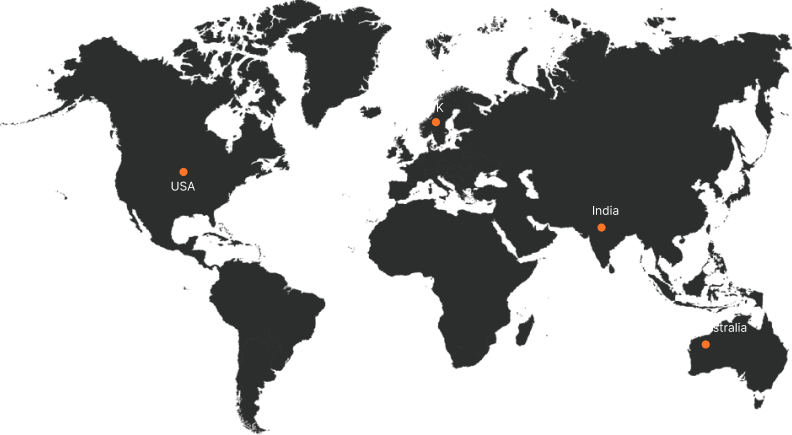What Does a Website Hosting Server’s Unique IP Address Consist Of?

Introduction
Every site has a “Static IP address.” A static IP address does not change with time. When you type “www.google.com”, the HTTP request is carried to Google’s server. Now, the routers, switches and other networking equipment between a user and Google forward this request based on the user’s and Google’s IP address.
Now, the question is: When you type www.google.com, how does your system get Google’s IP address?
This is where the Domain Name Server (DNS) steps in, simplifying the user experience. Every user connected to the internet relies on a DNS to translate human-readable domain names like www.google.com into machine-readable IP addresses. This service can be provided by your Internet Service Provider.
What is an IP Address?
An IP is an Internet Protocol, a unique address separated by periods (IPv4) or colons (IPv6) that determines a specific device on a network. This address allows devices to communicate with each other over the internet or local networks. There are two versions of IP addresses:

IPv4 (Internet Protocol version 4): IPv4 is a widely used system for identifying devices on a network with unique addresses made up of four numbers. The range of numbers is from 0 to 255 and are separated by periods. An example of an IPv4 address is 192.168.1.1.
IPv6 (Internet Protocol version 6): IPv6 was developed by the Internet Engineering Task Force to deal with the problem of IPv4 exhaustion. IPv6 is a 128-bits address and makes use of Hexa-Decimal format separated by colon (:). An example of an IPv6 address is 2001:0db8:85a3:0000:0000:8a2e:0370:7334.
Components of an IP Address
The IP address comprises two parts: the network ID and the host ID. You can use the network ID, the prefix, to identify the network on which the device is present. Host ID, which is the suffix, refers to a specific device on that network. There are separate IP classes used for different types of networks. You can use the class of an IP address to identify the number of bits in its network and host ID. Here are the following classes:
- Class A: This class is for extensive networks like the military, universities, and telecommunication companies. The first eight bits denote the network ID, and the remaining 24 bits denote the host ID. The addresses range from 10.0.0.0 to 10.255.255.255.
- Class B: This class is for medium and large-sized networks used in small businesses and home networks. The first 16 bits denote the network ID, and the remaining 16 bits represent the host ID, where the addresses range from 172.16.0.0 to 172.31.255.255.
- Class C: This class is for small local area networks (LAN). The first 24 bits denote the network ID, and the remaining eight bits represent the host ID, where the addresses range from 192.168.0.0 to 192.168.255.255.
- Class D: Hosts cannot use this class, as it only works as a multicast service. Some examples include streaming audio and video.
- Class E: This class of addresses is not available for general use and is usually reserved for research and development purposes.
How IP Addresses Work in Website Hosting
Regarding website hosting, the IP address is crucial in directing traffic to the correct server. Here’s a simplified explanation of how it works:
- Domain Name System (DNS): When you enter a web address, the DNS translates that address into an IP address. For example, typing www.example.com might translate to 93.184.216.34.
- Routing: This IP address routes your request through the Internet to the correct server hosting the website. The network identifier portion of the IP address helps direct the request to the appropriate network, while the host identifier ensures it reaches the specific server.
- Server Response: Once the request reaches the server, it takes charge. The server then processes the request and gives back the website data to your browser using your device’s IP address, ensuring the data reaches the correct destination.
Types of IP Addresses in Web Hosting
In the context of web hosting, there are typically two types of IP addresses:
Shared IP Address: Multiple websites hosted on a single server share the same IP address. This is common in shared hosting environments where resources are shared among many users to reduce costs.
Dedicated IP Address: A unique IP address is assigned to only one website or hosting account. This setup offers benefits such as SSL certificates, improved email delivery, and most importantly, it gives you greater control over the server, making you feel empowered in your web hosting journey.
Conclusion
Understanding the composition and function of IP addresses is essential for comprehending how the internet works and how websites are hosted. Each website hosting server has unique IP addresses, ensuring that internet traffic is accurately directed to the right destination. Whether using IPv4 or IPv6, the fundamental role of an IP address remains the same: to uniquely identify devices and facilitate seamless communication across the vast network we call the internet.
By grasping these concepts, you gain a deeper appreciation for the technology that underpins our online experiences and the critical role IP addresses play in maintaining the structure and functionality of the web.











